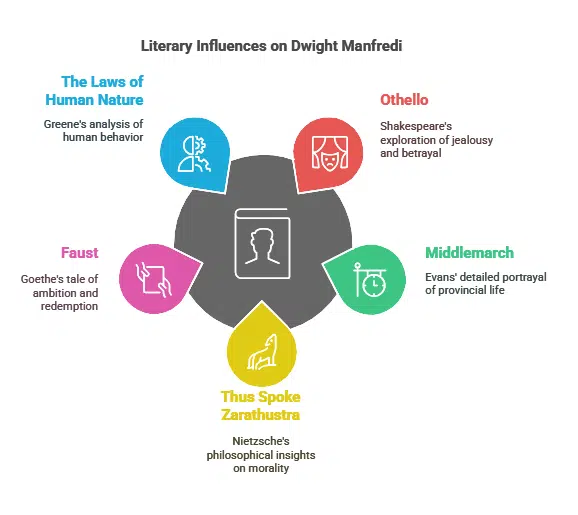Tulsa King, the popular crime drama series starring Sylvester Stallone, has captivated audiences with its gritty storyline and compelling characters.
As viewers immerse themselves in the world of Dwight “The General” Manfredi, many wonder about the origins of this intriguing tale. Is Tulsa King based on a book, or is it an original creation for television?
The short answer is no, Tulsa King is not based on a book. The series is an original creation by Taylor Sheridan, the acclaimed writer and creator behind hit shows like Yellowstone and 1883. Sheridan conceived the idea for Tulsa King and wrote the pilot script in a remarkably short time, showcasing his storytelling prowess.
The Genesis of Tulsa King
While Tulsa King is not adapted from a book, its creation story is fascinating in its own right. Taylor Sheridan, known for his rapid-fire creativity, reportedly developed the concept for the show during a brief conversation. According to The Hollywood Reporter, Sheridan spent about an hour discussing a “fish out of water” story idea. Shortly after, he sent a completed script titled “Kansas City King” to the network, which was later renamed “Tulsa King.
This swift development process speaks to Sheridan’s ability to craft compelling narratives quickly. The show’s premise – a New York mafia capo exiled to Tulsa, Oklahoma, after a 25-year prison stint – emerged fully formed from Sheridan’s imagination rather than being adapted from existing source material.
Inspiration Behind the Story
Although Tulsa King is not based on a book, it draws inspiration from various sources, including real-life events and classic mob stories. The show’s narrative shares some parallels with the history of the Inzerillo crime family, though it’s important to note that these connections are loose inspirations rather than direct adaptations.
The Inzerillo Connection
The Inzerillo crime family’s story bears some resemblance to the premise of Tulsa King:
- Exile: The Inzerillos were exiled from Sicily to New York after a violent conflict with rival mafia groups in the late 1970s.
- Rebuilding: With help from American allies like the Gambino family, they rebuilt their lives while in exile.
- New Criminal Empire: Similar to Dwight in Tulsa King, the Inzerillos sought to establish a new presence in their place of exile.
While these parallels exist, it’s crucial to understand that Tulsa King is a work of fiction and not a direct retelling of the Inzerillo family’s story.
Fictional Elements and Creative License
Tulsa King is entirely fictional, with its characters, plot, and setting created by Sheridan and his team. The show blends elements of classic mob dramas with fish-out-of-water comedy, creating a unique viewing experience. This blend of genres allows for creative storytelling that isn’t constrained by adhering to a pre-existing book or true story.
The Power of Original Content
The success of Tulsa King demonstrates the appetite for original content in the streaming era. As of January 2025, the show has completed two seasons and has been renewed for a third and fourth season. Its popularity is evident in its viewership numbers:
- The second season premiere was watched by 2 million people within 24 hours.
- Within 7 days, viewership rose to 5.4 million households.
- This set a new record on Paramount+ for the largest number of viewers on a series’ premiere day.
These impressive figures highlight the show’s appeal and the audience’s enthusiasm for fresh, original storytelling.
Tulsa King’s Literary Connections
While Tulsa King itself is not based on a book, the show does incorporate literary elements that add depth to its characters, particularly Dwight Manfredi. In the series pilot, we see that Dwight read several classic works during his 25-year prison sentence, including:
- Othello by William Shakespeare
- Middlemarch by Mary Anne Evans
- Thus Spoke Zarathustra by Friedrich Nietzsche
- Faust by Johann Wolfgang von Goethe
- The Laws of Human Nature by Robert Greene
These books offer insight into Dwight’s character and the themes explored in the show. For example, Faust’s deal with the devil mirrors Dwight’s commitment to the mafia, while Zarathustra’s challenge to tradition reflects Dwight’s approach to his new life in Tulsa.
Critical Reception and Audience Response
Tulsa King has received generally positive reviews from critics and audiences alike. On Rotten Tomatoes, the first season holds a 79% approval rating from critics, with an average rating of 6.6/10. The audience score is even higher, with 91% of Google users giving the show a positive vote.
Critics have praised Sylvester Stallone’s performance, with many considering it one of his best roles in years. The show’s blend of drama and comedy has also been well-received, with viewers appreciating the fresh take on the mob genre.
The Future of Tulsa King
As Tulsa King continues to gain popularity, there’s potential for the franchise to expand. Paramount+ has already greenlit a third and fourth season, and there are early discussions about a potential spin-off series. This expansion suggests that while Tulsa King didn’t start as a book, it may inspire tie-in novels or other media in the future.
Takeaways
Is Tulsa King based on a book? No, it is not. The series is an original creation by Taylor Sheridan, demonstrating the power of fresh, innovative storytelling in the television landscape. While it draws inspiration from real-life events and classic mob tales, Tulsa King stands on its own as a unique narrative that has captured the imagination of viewers worldwide.
The success of Tulsa King proves that original content can thrive in a market often dominated by adaptations and reboots. As the show continues to evolve, it may inspire books and other media in the future, but for now, it remains a testament to the creative vision of its creators and the enduring appeal of well-crafted original stories.







































